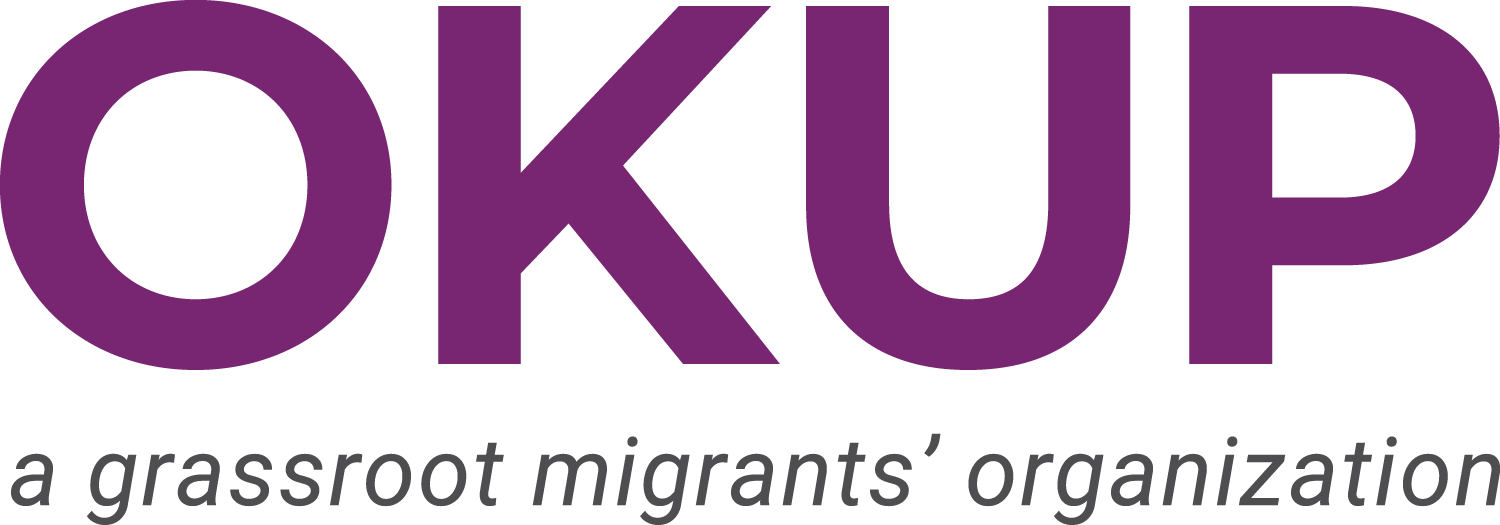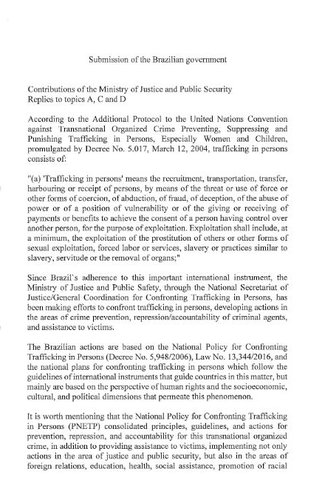Submission of Brazilian Government
2022
- Author
- Ministry of Justice and Public Security of Brasil
- World region
- Latin America and Caribbean
- Origin of migration
- Valadares (children), Brazil; Amazon region; Venezuela, Brazil
- Area of transit
- No data available
- Destination of migration
- USA (children), Brazil
- Who is affected
- Children, Indigenous communities, Young men, Young women
- Type of climatic event
-
Rapid-onset event, Slow-onset event
Droughts and floods.
- Type of migration/mobility
-
Cross-border, Internal
The intensification of drought in some regions of Brazil worsens poverty and may also drive the migration of young men and women to large cities.
- Destination industry or sector
-
Mining
*Deforestation and illegal mining
- Type of modern slavery
-
Forced commercial sexual exploitation, Forced labour, Human trafficking
- Link between climate change, migration and modern slavery
- Direct, Indirect
- Key vulnerability factors
-
Climate change impacts can prevent access to natural resources and lead to displacement, exacerbating vulnerability to modern slavery. Indigenous people are particularly vulnerable to modern slavery in this context because of their close relationship with the land and natural resources. Social exclusion, marginalisation and inequalities – which affect women, people of African descent and LGBTQI+ people in particular – also worsen vulnerability to modern slavery. Worsening poverty as a result of climate change events can also push communities to migrate, increasing their vulnerability to modern slavery. Unsafe and undocumented migration also increases vulnerability to modern slavery.
- Summary
-
The Brazilian government's submission to the United Nations Special Rapporteur on trafficking in persons, especially women and children, provides contextual information on Brazil's legal framework and efforts to end human trafficking. The document places high importance on targeting social inequalities and on the particular vulnerabilities of indigenous communities. It also reports an increase in child trafficking in the municipality of Governor Valadares and recognises the specific vulnerabilities of people with disabilities during climate events.
- Recommendations
-
In this submission, Brazil highlights the importance of addressing poverty and inequality to reduce vulnerability to exploitation and human trafficking. An element of concern especially for indigenous peoples' vulnerability to human trafficking remains, however, the impact of socio-economic changes in the region.



